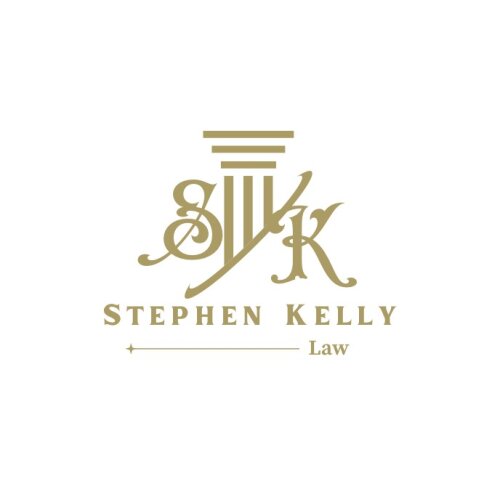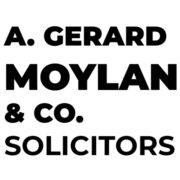Best Lawyers in Dublin
Share your needs with us, get contacted by law firms.
Free. Takes 2 min.
List of the best lawyers in Dublin, Ireland
Ireland Legal Questions answered by Lawyers
Browse our 4 legal questions in Ireland and read the lawyer answers, or ask your own questions for free.
- Work permit
- I'm looking for work permit. Currently working in Dubai.
-
Lawyer answer by Ascendance International Consulting (A-I-C)
The most common types of work permits in the UAE are the Employment Visa and the Work Permit. These are generally tied to the specific job you're hired for and the company that sponsors you. Once you arrive in Dubai,...
Read full answer - Probate - Grant of Administration
- Hi there, I'm was the only child. My mother was divorced with no will. I need a Grant of Administration in order to close her bank account.
-
Lawyer answer by Wynter & Co Attorneys-at-Law
My response is based on Jamaican law. You would be correct. Since your mother passed away without a will (intestate) and you are the only surviving child, you will need to apply to the Supreme Court for a Grant of...
Read full answer - preclearance refusal
- My unmarried partner applied for a defacto to join me in Ireland with our four children wh all live in Nigeria with their mother - two of the kids are Irish citizens. The application was refused based on the reason that I have not continuosly lived in Nigeria with her... Read more →
-
Lawyer answer by mohammad mehdi ghanbari
Hello,Thank you for reaching out regarding your defacto visa refusal for Ireland. I understand this is a difficult situation. The refusal is often based on strict cohabitation requirements, financial proofs, and housing evidence. I can assist you with detailed legal...
Read full answer
Ireland Legal Articles
Browse our 1 legal article in Ireland written by expert lawyers.
- Debt Collectors in Ireland: Verify Debts and Stop Harassment
- In Ireland, regulated lenders and their agents must follow the Central Bank’s Consumer Protection Code and, for mortgages, the Code of Conduct on Mortgage Arrears. Harassment, misleading statements, and excessive contact are prohibited. You can set contact limits and request all communication in writing. Send a written notice and keep... Read more →
About Hiring a Lawyer in Dublin, Ireland
Hiring a lawyer in Dublin, Ireland typically involves a few straightforward steps. First, you'll need to identify the type of legal service you require, whether it's for personal, family, corporate, or criminal law, among others. Once you’ve pinpointed your needs, you can start researching law firms or individual solicitors who specialize in that area. Online directories and reviews can be helpful in making your decision. Initial consultations are often useful for discussing your case and understanding the lawyer's approach and fees. From there, you can formally engage their services through a signed agreement.
Why You May Need a Lawyer
There are numerous situations where one might require legal help in Dublin, Ireland. Common scenarios include:
- Property Transactions: Legal advice is crucial when buying or selling a property to ensure that all contractual obligations are met.
- Family Issues: This includes divorce, child custody, or estate planning, all of which benefit from legal guidance.
- Employment Disputes: Issues such as wrongful termination or workplace discrimination often require professional legal intervention.
- Criminal Charges: Whether it’s a minor offense or serious crime, having a competent defense lawyer is essential.
- Business Matters: Incorporating a company, drafting contracts, or resolving business disputes are all scenarios where legal advice is beneficial.
- Personal Injury Claims: If you’ve been injured due to someone else’s negligence, legal help can facilitate compensation claims.
Local Laws Overview
Dublin, as part of the Republic of Ireland, operates under Irish law. Key legal frameworks to be aware of include:
- Constitution of Ireland: The primary document outlining the state's fundamental laws and individual rights.
- Criminal Law: This covers offenses like theft, assault, and driving under the influence, and sets out the corresponding penalties.
- Family Law: Includes marriage, divorce, child custody, and support regulations.
- Civil Law: Governs disputes between individuals or organizations, including personal injury claims and contract disagreements.
- Employment Law: Regulates employer-employee relationships, including compensation, working conditions, and dispute resolution.
- Property Law: Covers the mechanics of buying, selling, and leasing real estate.
Frequently Asked Questions
1. How do I find a good lawyer in Dublin?
Start by identifying your legal needs, then look for law firms or solicitors with a specialization that matches. Use online reviews, bar association directories, and personal recommendations to narrow down your choices.
2. What should I bring to my initial consultation?
Bring any relevant documents related to your case, such as contracts, correspondence, and evidence. Prepare a list of questions to ask the lawyer.
3. How much do lawyers charge in Dublin?
The cost can vary widely depending on the complexity of your case and the lawyer's experience. Some charge by the hour, while others may offer flat fee structures or contingency plans.
4. Can legal fees be negotiated?
Yes, it’s possible to negotiate legal fees. Discuss payment terms and fee structures during the initial consultation to find a plan that works for you.
5. What is a solicitor's role versus a barrister?
Solicitors handle most legal matters, including paperwork and communication with clients, whereas barristers specialize in courtroom advocacy and litigation.
6. How long does it take to resolve a legal matter?
The duration can range from a few weeks to several years, depending on the complexity and nature of the case.
7. What if I cannot afford a lawyer?
If you cannot afford legal services, you might qualify for legal aid, which can provide financial assistance for legal representation.
8. Is it necessary to engage a lawyer for minor issues?
For minor issues, it might be feasible to handle the matter yourself, but consulting a lawyer even briefly can often clarify your options and the potential risks involved.
9. What should I do if I'm facing criminal charges?
Seek legal counsel immediately to ensure your rights are protected and to start building your defense strategy.
10. How do I terminate a lawyer’s services?
If you need to end your relationship with a lawyer, provide written notice, settle any outstanding fees, and request your case files be transferred to a new lawyer if necessary.
Additional Resources
For those seeking legal advice in Dublin, the following resources can be particularly helpful:
- The Law Society of Ireland: Offers directories and educational resources on finding legal help.
- Citizens Information: Provides comprehensive guides on various legal topics relevant to Ireland.
- The Irish Legal Aid Board: Can assist with legal representation if you qualify for legal aid.
- Local Community Law Centres: Offer free legal advice and support on various issues.
- Court Services of Ireland: Useful for understanding court procedures and accessing forms.
Next Steps
If you need legal assistance in Dublin, Ireland, start by identifying your specific needs and researching potential lawyers or law firms. Schedule initial consultations to discuss your case and understand the fee structures. Once you've selected a lawyer, carefully follow their guidance and provide all necessary documentation promptly. For those who may need financial assistance, explore the options available through legal aid or community law centres. Remember, taking prompt action and seeking competent legal advice can significantly influence the outcome of your case.
Lawzana helps you find the best lawyers and law firms in Dublin through a curated and pre-screened list of qualified legal professionals. Our platform offers rankings and detailed profiles of attorneys and law firms, allowing you to compare based on practice areas, experience, and client feedback.
Each profile includes a description of the firm's areas of practice, client reviews, team members and partners, year of establishment, spoken languages, office locations, contact information, social media presence, and any published articles or resources. Most firms on our platform speak English and are experienced in both local and international legal matters.
Get a quote from top-rated law firms in Dublin, Ireland — quickly, securely, and without unnecessary hassle.
Disclaimer:
The information provided on this page is for general informational purposes only and does not constitute legal advice. While we strive to ensure the accuracy and relevance of the content, legal information may change over time, and interpretations of the law can vary. You should always consult with a qualified legal professional for advice specific to your situation.
We disclaim all liability for actions taken or not taken based on the content of this page. If you believe any information is incorrect or outdated, please contact us, and we will review and update it where appropriate.
Refine your search by selecting a practice area.



































